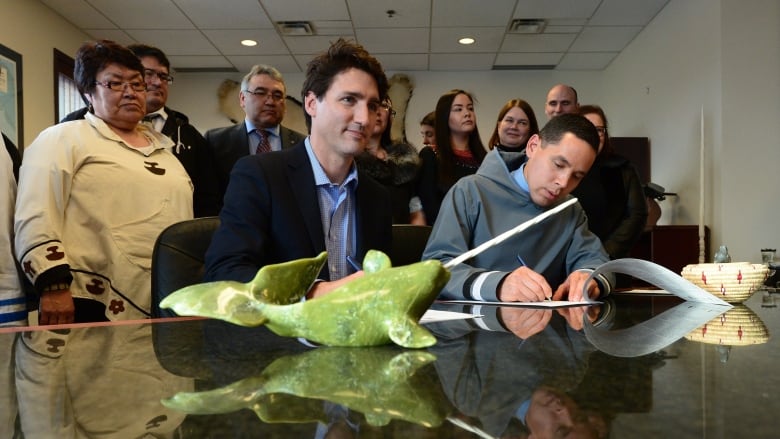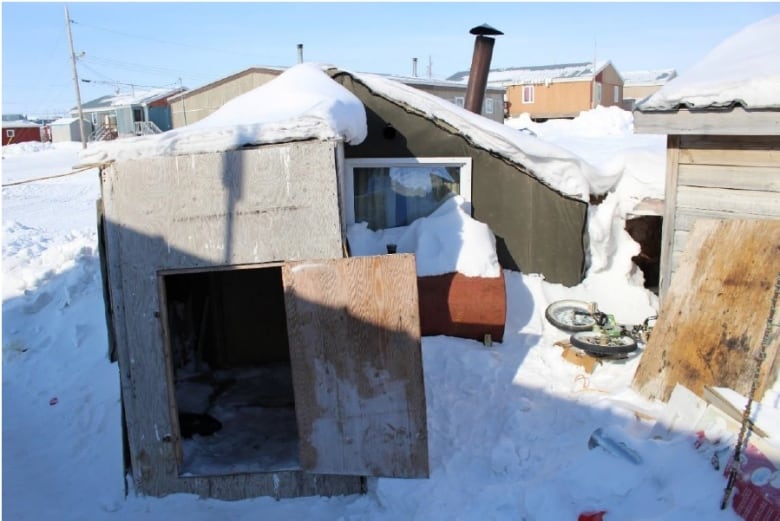Inuit housing strategy in Canada calls for local training to help solve crisis

The Inuit-Crown Partnership Committee has released its strategy for addressing a chronic shortage of housing for Inuit, saying that consistent funding and creating local capacity to build homes are keys in finding a sustainable solution.
The strategy, released Wednesday, is light on specifics but calls for several solutions, including finding a way to direct federal housing money to Inuit organizations in Nunavut, rather than entirely through the territorial government.
The partnership was created in 2017 and includes leaders from Inuit organizations across Canada, as well as representatives from the federal government.
Addressing the housing shortage in Inuit Nunangat — the area traditionally occupied by Inuit — is one of the partnership’s main priorities. In many parts of Inuit Nunangat, housing issues are severe, and the report refers to it as a “national crisis.”
According to the report, over half of Inuit in Inuit Nunangat were living in crowded housing in 2016, compared to 8.5 per cent of non-Indigenous Canadians. In addition, 31.5 per cent of Inuit in the region live in homes that require major repairs.

Funding delays, capacity issues must be addressed, says report
The strategy suggests that despite significant investments made in recent federal budgets — the 2018 budget promised $400 million for Inuit housing and infrastructure over 10 years — there are issues with how the funding was delivered, with delays “erod[ing] the overall effectiveness of those investments.”
Creating a consistent method of funding, like a grant that can allow the funds to flow directly to Inuit organizations, would help alleviate the uncertainty, the strategy suggests.
However, funding is only one piece of the puzzle. In order to create a sustainable housing model for Inuit communities, the strategy says capacity needs to be built in the skilled trades “so that Inuit are better supported and equipped to participate in construction, and operations and maintenance projects.”
In total, six actions were identified in the strategy:
- Assess the effectiveness of recent investments in housing in Inuit Nunangat.
- Develop a long-term plan for direct federal housing investments in Inuit Nunangat.
- Enhance research, innovation and statistics.
- Reduce overcrowding and reliance on social housing while increasing affordable housing options and improving housing quality.
- Enhance capacity.
- Enhance intergovernmental collaboration.
The document states a detailed implementation plan will be co-developed by the Inuit-Crown Partnership committee, informed by discussions with provincial and territorial governments. A gender-based analysis will also be conducted with Pauktuutit Inuit Women of Canada.
Related stories from around the North:
Canada: Housing crisis in Canada’s east-Arctic worsens as homes become too old to live in, CBC News
Finland: Finland takes thousands off streets by giving homes to homeless, Yle News
Russia: Abandoned Russian airbase to become wealthy residential neighborhood, Photo report by The Independent Barents Observer
Sweden: Small town hopes to reverse depopulation trend affecting rural and Northern Sweden, Radio Sweden



